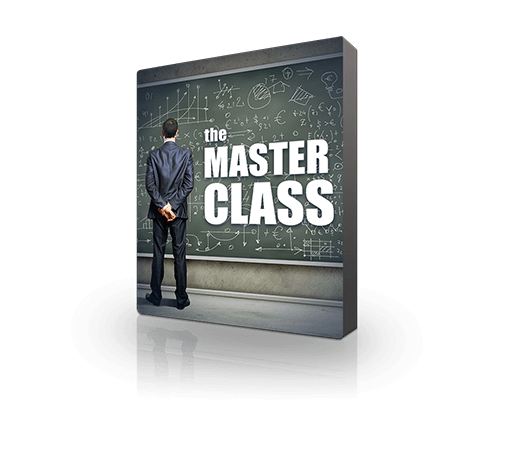 |
||||||||||||||||||
   
Balancing Act: The Newsletter (No. 214, June 2017) Balancing Act® is our registered trademark. You are encouraged to share the contents with others with appropriate attribution. Please use the ® whenever the phrase "Balancing Act" is used in connection with this newsletter or our workshops.. Balancing act is in four sections this month: 1. Techniques for Balance 2. Musings 3. The Human Condition: Come-Backs 4. ORTIYKMWOYBNT-O Department Follow me on Twitter! You can find me here: And find me on Facebook: https://www.facebook.com/RockStarOfConsulting Free consulting newsletter: The Million Dollar Consulting® Mindset:

• Never get rattled. Whether you're skiing down a slope, driving your car, about to go on stage, or walking into a client meeting. Nothing you do is going to affect the course of western civilization. • Don't blindly trust experts, use their knowledge within the framework of your needs. Otherwise, my tree guy would be severely trimming every tree on the property. • If you had a garden, you wouldn't be happy if nothing grew, or if it simply stalled at some point of growth. The same should apply to your career. • It's an age when fewer and fewer people have manners, so I feel even better when I hold the door for someone or allow them to get ahead of me in a merging line or to cross against traffic in front of me. • I don't know if I've ever been in an environment of such maximum pretension as when I'm in a line at Starbuck's listening to the ordering. • If you are afraid to question, you'll never be as smart as you could be, and that includes your doctor, tax people, attorney, teachers of your children, and the police. • If you don't have a "Plan B" then you don't really have a "Plan A," either. • Telling the truth requires less memory, less energy, and less stress than trying to fabricate a story so that no one's upset. • I've always advocated not listening to advice unless you've asked for it. That same principle applies to offering it. • When the lottery reaches $300 million, people line up in the streets waiting to buy tickets as if, when it was only $5 million, it didn't matter and wouldn't have changed their lives. We all need some perspective. 
"Confirmation bias" is the term applied to the habit of interpreting all new evidence as supportive of your existing beliefs (or the rejection of evidence that might undermine them). Thus, someone (in MENSA, no less) actually told me that the toy and photos produced on the deathbed of the man who faked the most famous Loch Ness Monster photo was actually staged by the government to convince us the monster doesn't exist. In other words, this was further evidence of the cover up! "You get what you pay for" is an observation rife for confirmation bias. That's why you see people after a mediocre speech or lackluster play nonetheless jumping to their feet to applaud because they want to confirm that their decision to spend their time and their money was intelligent and not an error. (And they are further confirmed in that belief by their colleagues doing the exact same thing.) Many times you do get what you pay for. First class air travel is far more comfortable than coach, and first class on, say, Emirates, is far more luxurious than first class on United. (You can't beat a shower on board the plane.) However, many times we pay for perception. When I needed a strange wrench that I didn't own, I found three on the shelf of the hardware store and purchased the most expensive (by $3), assuming it was the best (I had no other criteria to use). Confirmation bias is viciously in play with highly emotional subjects: climate change, abortion, vivisection, politics, health care, welfare, education. That's because passionate beliefs need to be shored up at all costs, and we're reluctant to listen to evidence to the contrary with any objectivity at all. And that's one reason why we have such a polarized political climate in the U.S. right now. We need to stop searching solely for opinion and information that support our point of view (which is most of the activity on Facebook, by the way). As intelligent beings, we owe it to ourselves and our society to deliberately pursue varied points of view to draw our own rational conclusions. If we don't, we'll be forever attending performances that cost a lot of money and aren't always very good, but we applaud in any case. When we lose that kind of discretion, we've lost our reason as well as our money. 
There are been some monumental Come-Backs in sports, most recently the Patriots in the Super Bowl. Just the other night a playoff hockey team scored three goals in the final three minutes to tie the game and then won it in overtime. Most of the time, however, teams facing huge deficits tend to fold and simply await the inevitable as the clock runs out. The same holds true for organizations. I doubt that anyone is expecting Macy's to make some dramatic comeback. And the jury is still out on Samsung, with exploding appliances and phones, and executives being hauled off to jail for corruption. I looked at sports rallies and at organizational "rehabilitation" and tried to isolate when some came back and most sank. And I've concluded that it's more about mindset than talent. Arnie Palmer used to be famous for his "charges" as he dominated the course under the intense pressure of the final round. Today, it's more common to see who can hold on as others suffer from the pressure. The attributes for a successful comeback are: • Discipline: The ability to avoid panic and maintain control. • Adjustment: The understanding of what isn't working and how it has to change. • Belief: Confidence in yourself (and others around you) that if everyone does the job required things will improve. • Perspective: The realization that it's not the end of the world, and that the current predicament is not a commentary on your self-worth. • Trust: The knowledge that you and your colleagues will all work together and that no one will give up. That's why the Union won the Civil War. It's why Truman (and Trump) won the presidency. It's why the Red Sox beat the Yankees in the World Series after being down three games to none. It's why the English fleet defeated the Spanish Armada. (Lord Nelson: "England expects that every man will do his duty" at Trafalgar in the Napoleonic Wars.) I'd always advise that you try not to fall far behind. But I'd also advise that, should you do so, don't give up. Never give up. It's not the end, but rather the beginning…..of your comeback. 
We had obtained two playoff tickets for a Providence Bruins (minor league hockey) playoff game and drove to a nearby parking garage. Here is what ensued with the cashier: Him: Nice car! Me: Thanks! You don't seem very crowded for a hockey playoff game. Him: There's no hockey playoff game tonight. Me: Sure there is. I have tickets with free parking! Him: Let me see them. (I hand them over.) Sir, these are for the Boston Bruins. You're in the wrong city. Me: The Boston Bruins? I have tickets to the major league playoffs? Him: Do you have to take any kind of test to buy one of these cars? 
My collected IP in text, video, audio, workshop, and electronic availability, about $75,000 worth from the past decade and more, is available for one payment for lifetime membership. This was formerly up to $4,500 annually, and is now $2,500 for lifetime access, and we are continually adding new IP. Go here: Lifetime Growth Access NEW: LIFESTORMING - THE TELECONFERENCE July 6, 2017, 11AM US Eastern time (1 hour) The audible version of the book isn't yet available, but this teleconference should take care of that for now. I'll discuss: - How to set intelligent aspirations - Triage among friends - Challenging your own belief system - The components and evolution of character - The concept of critical abandonment - How to grant yourself more permission - Growth through generosity Click here to register: Lifestorming - The Teleconference NEW: GPS - GENIUS POSITIONING SYSTEM September 17-18, 2017, New York City Join Mark Levy and me for a day or 1.5 days and emerge with messaging, positioning, and branding that will land you on your ideal buyers' radar screens. We'll talk about moving from a brand to your name and then establishing sub- brands. We'll support this with relevant, exciting IP creation. This will be an intense two days of brand-sculpting. Click here to register: GPS - Genius Positioning System September 8, 2017, October 19-20, 2017, Boston Here's an unusual opportunity. I'm holding an event in Boston for a full day on September 8 on my book Million Dollar Maverick. It is for the original mutli-volume purchasers, but you can participate for just $750! Also, on October 19-20, I'm conducting two days on general entrepreneurialism and business growth in New York for one of my special groups, but you can attend both these days for $1,400. Email me for details at [email protected].
I’ve run two free pilots to test the technology, and now we’re off and running in 2017. Watch a one-hour workshop, rich in content, and ask questions while in progress, no matter where you are in the world. They are also recorded, in case you can’t make the live event or want to retain the actual broadcast. I’m offering six, as detailed below, at $75 each, or $400 for all six. You can register here: Livestream Workshop Schedule: • Feb. 23, 2017: The Strategist - How to set strategies for organizations or individuals (Completed but available on recording) • Apr. 18, 2017: The Innovator - A methodology for systematic innovation • Jun. 13, 2017: Creating 6-figure Projects - Consistently and effectively • Sep. 19, 2017: The Advisor - Advisory work as your primary intervention • Oct. 17, 2017: Abundance - The mindset of success, happiness, and growth • Nov. 16, 2017: The Expert - How to command a room, discussion, and direction FREE PODCASTS: THE UNCOMFORTABLE TRUTH My new podcast series, twice monthly, on iTunes: #1: Control: How to maximize control of your life and not surrender your future. #2: Energy: How the Second Law of Thermodynamics can erode your business and your life if you don’t renew yourself. #3: Fear Not: Roosevelt was right, and we ought to stop being frightened by everything that goes “bump” in the night. #4: Marketing Magic: A manifesto on marketing—and buying—realities and why usage trumps functionality. #5: Myths: A memorial service to the many friends you lost when they went swimming 55 minutes after having lunch. #6: Polarization: The vast, ignorant error in believing people who disagree with you are stupid. #7: The Aggrieved: Why whatever you perceive your condition to be doesn’t warrant a vote in Congress or a newscast. #8: Conservatism: Why we are far too timid in our lives and work and how to stop playing a "prevent defense." #9: Degradation: How standards begin to erode and what we can do to correct it. #10: Overprotection: The cosseting of youth, and how it's leaving them vulnerable in the real world. #11: Overkill: Pounding away until the point is crushed under the weight of redundancy. #12: Denial: Why we make ostriches' behavior in the face of threat seem reasonable. #13: Selecting: We "settle" in stead of deliberately choosing what's best for us, and we need to stop that. #14: Contrarianism: Why taking an opposite view is a public service and how to do it. #15: Who Loves You?: Who's got your back and how you can tell, and why it's important. #16: No, You Can't: A different perspective on the popular—and incorrect—belief that you can do whatever you think you can.
Having problems viewing this email, click here. © Alan Weiss 2017 |
Balancing Act® is our registered trademark. You are encouraged to share the contents with others with appropriate attribution. Please use the ® whenever the phrase "Balancing Act" is used in connection with this newsletter or our workshops.

Every day is a sunny day if we're capable of producing our own light. Alan Weiss |
|||||||||||||||||
 |
||||||||||||||||||






